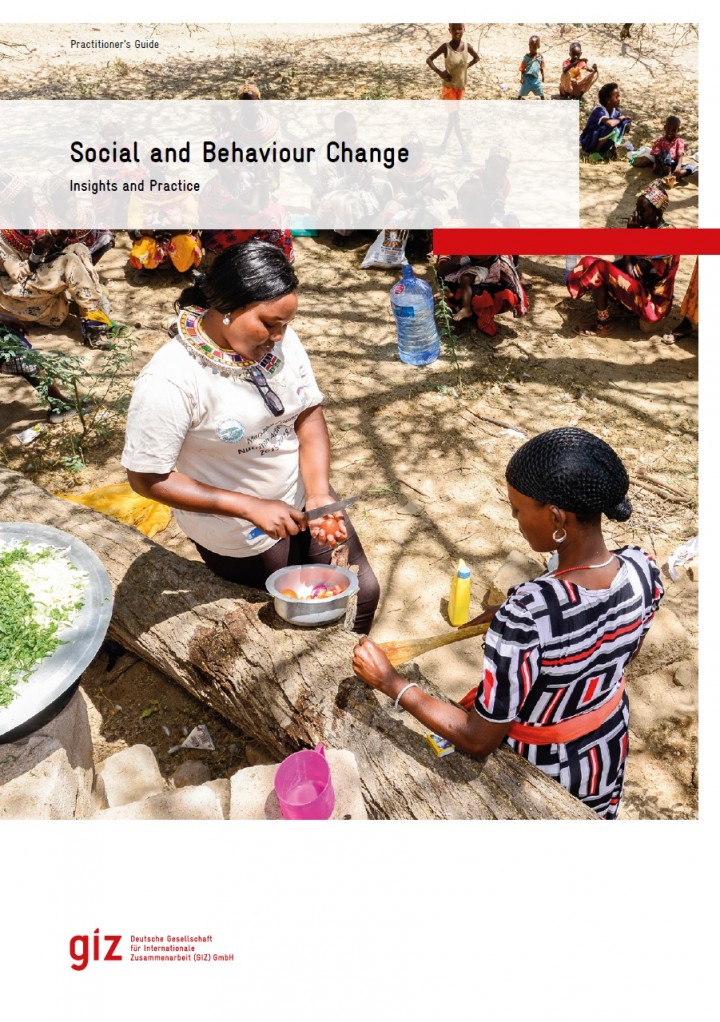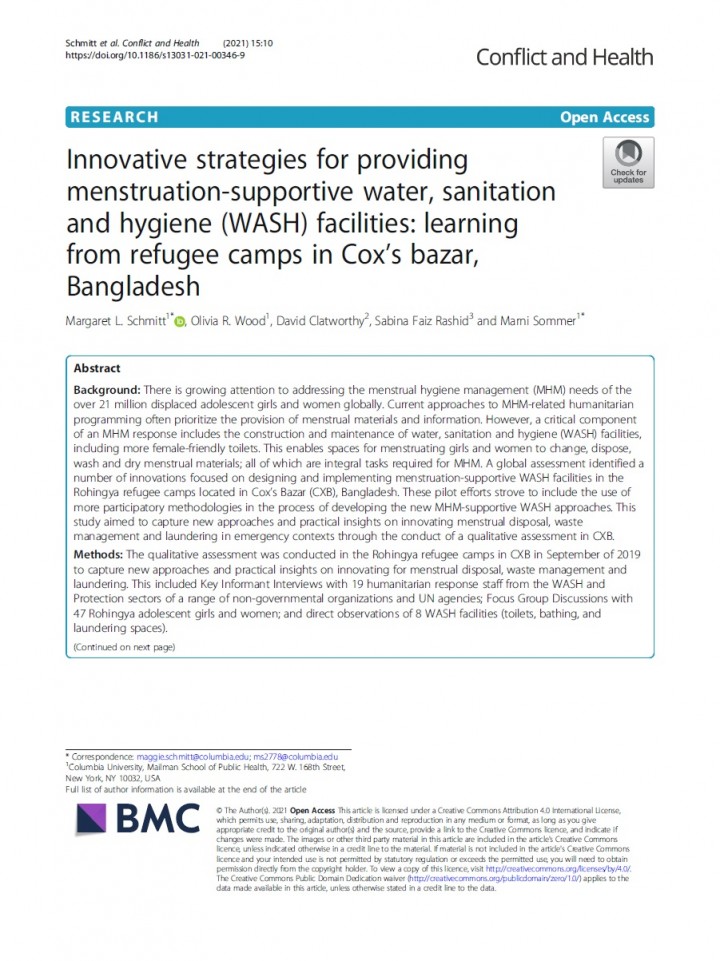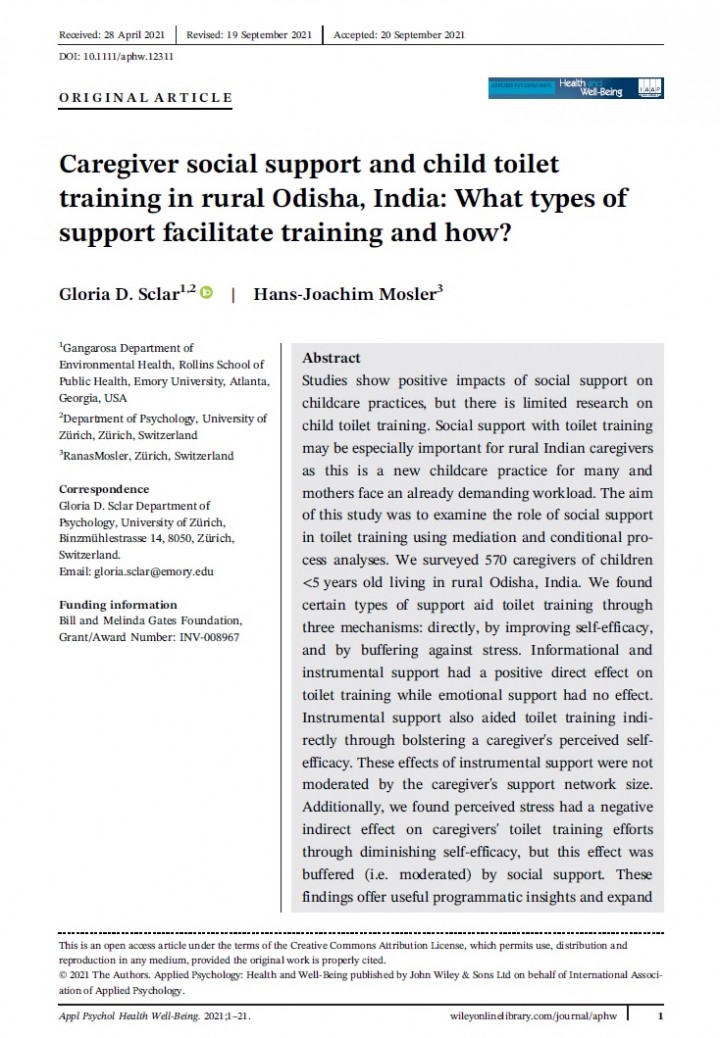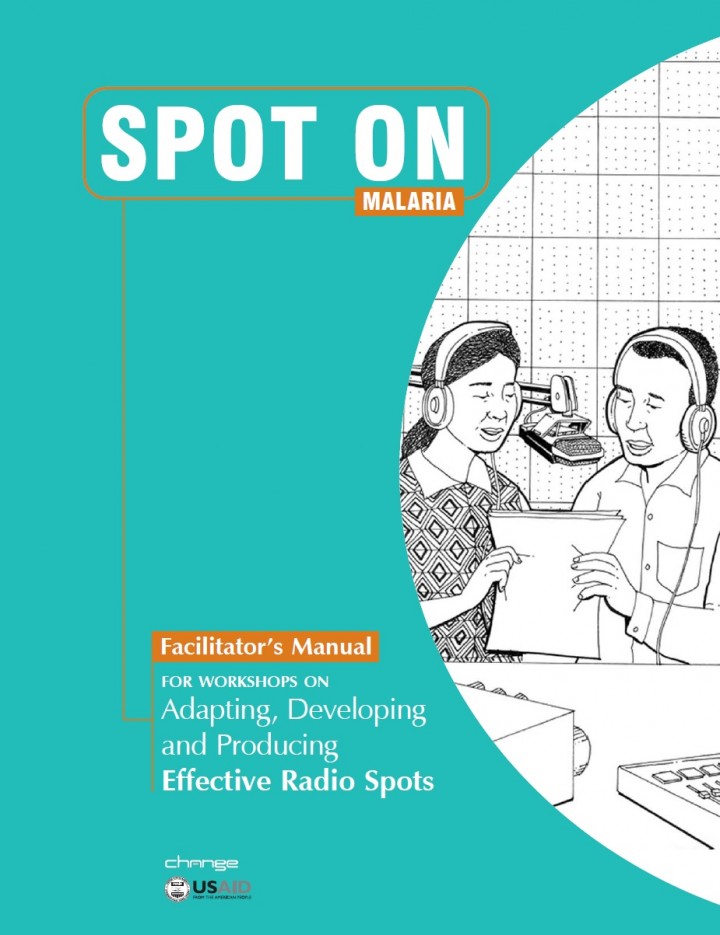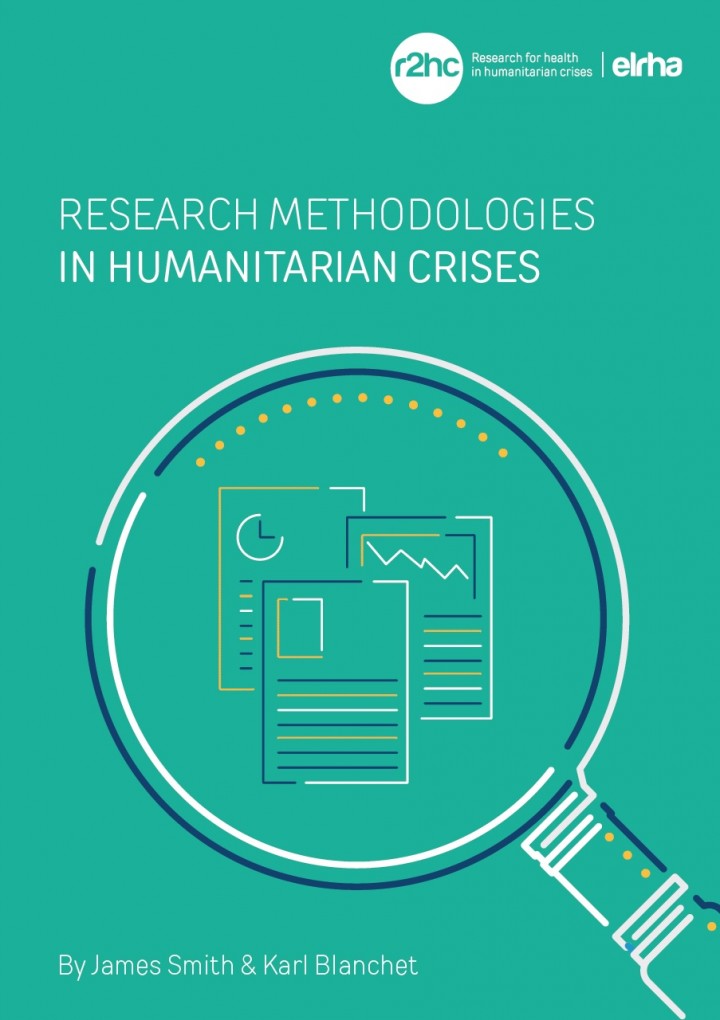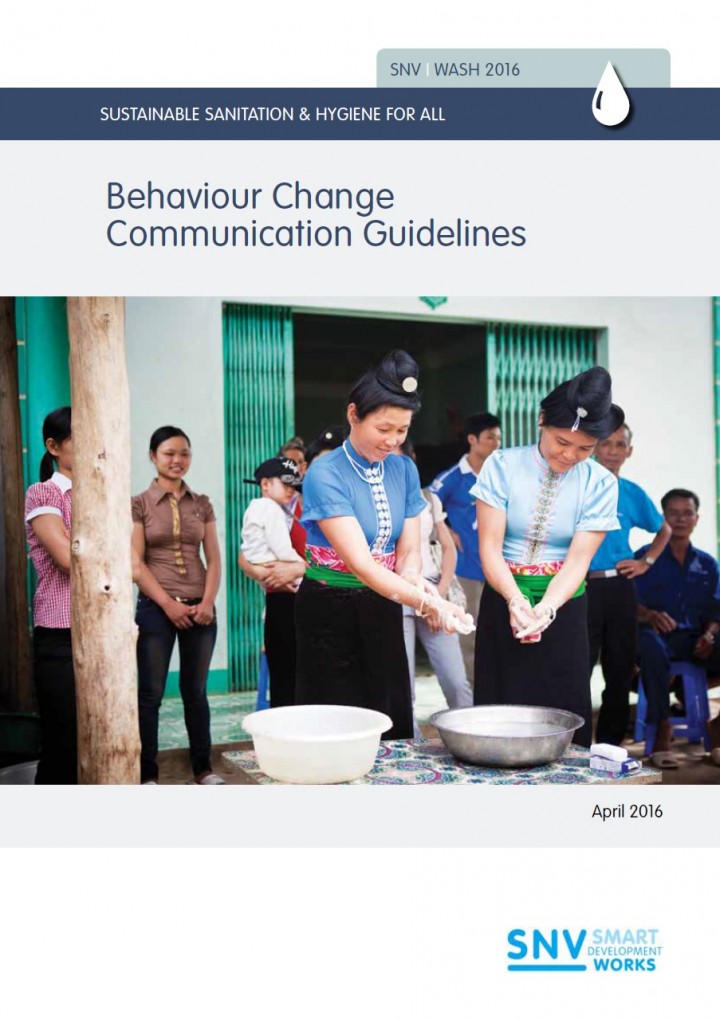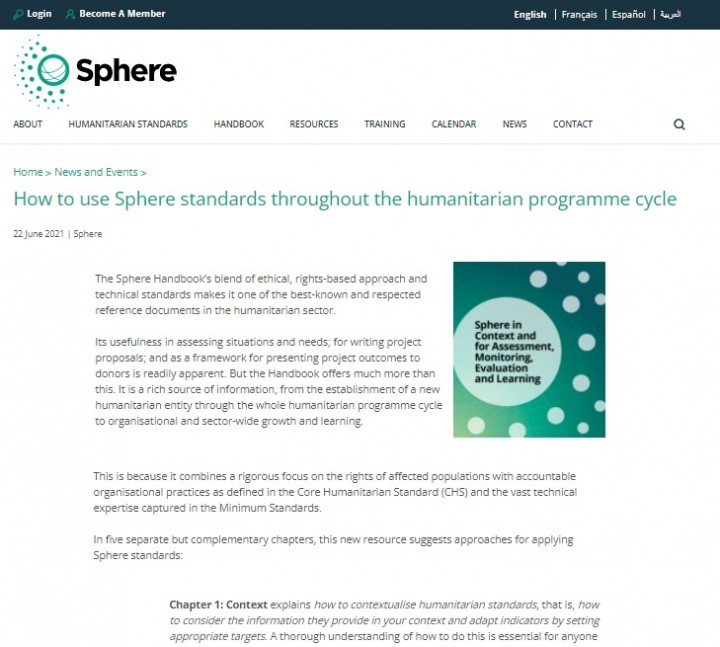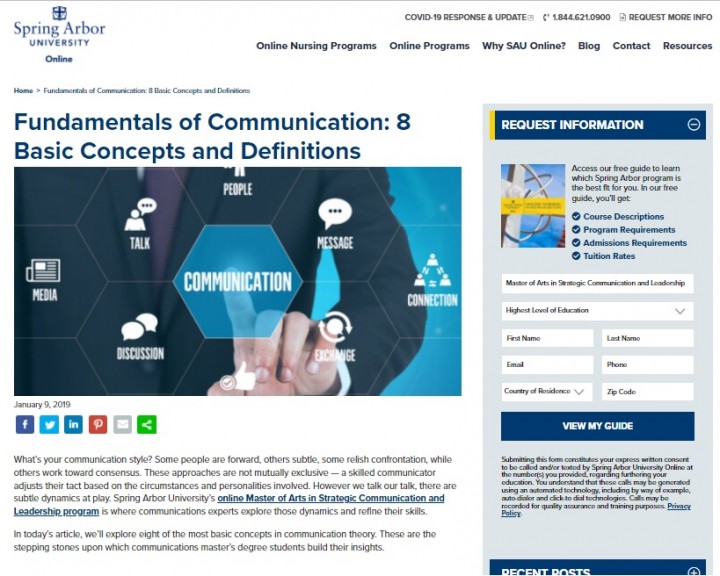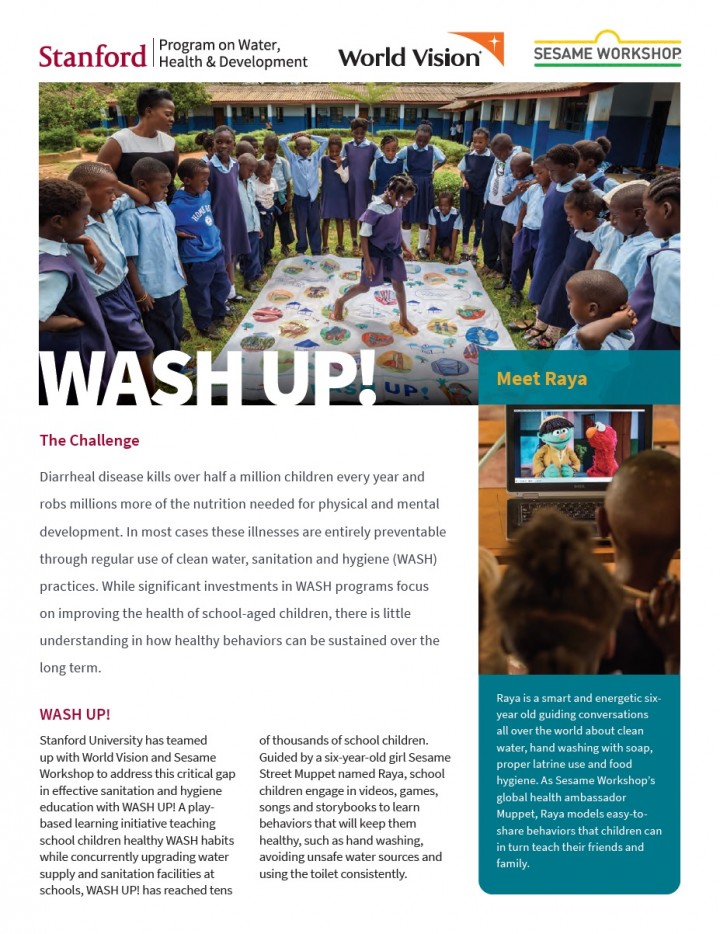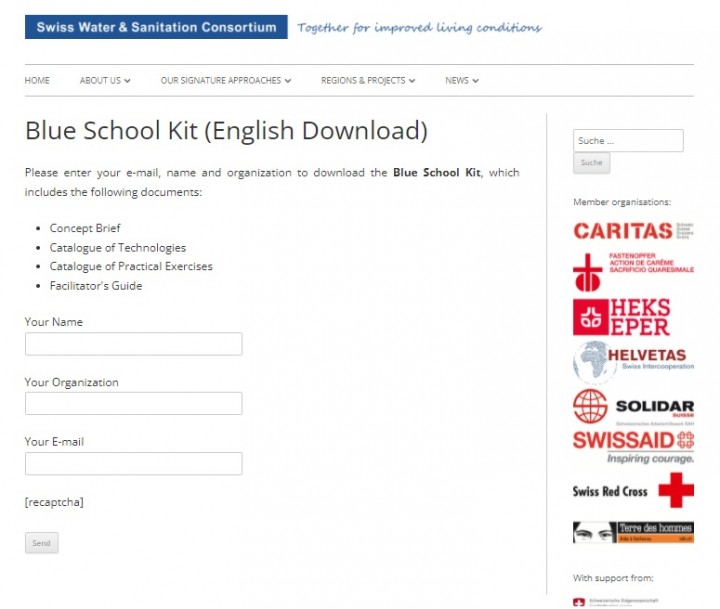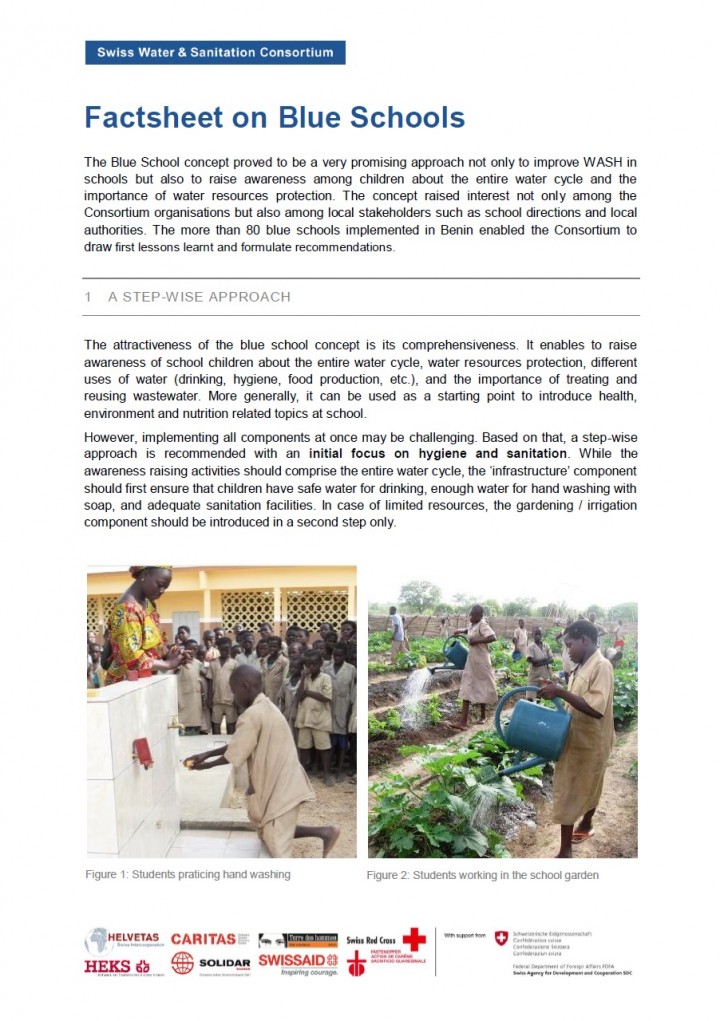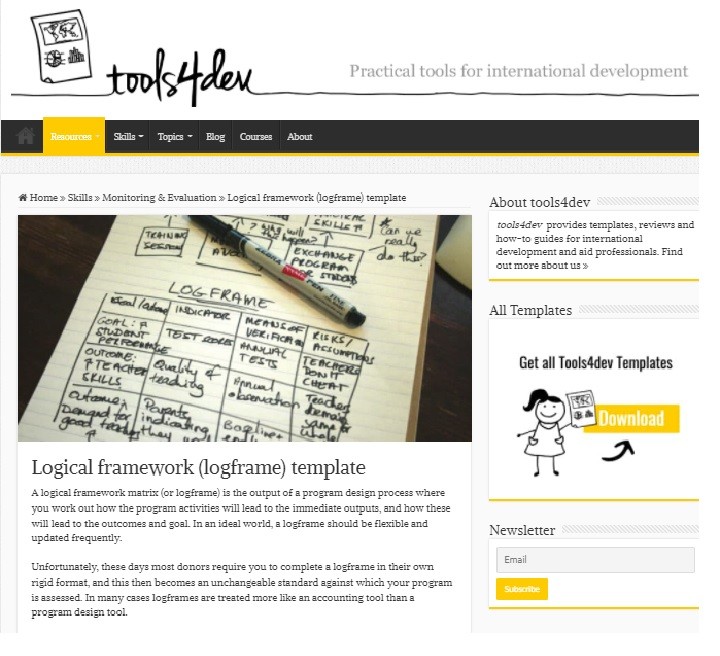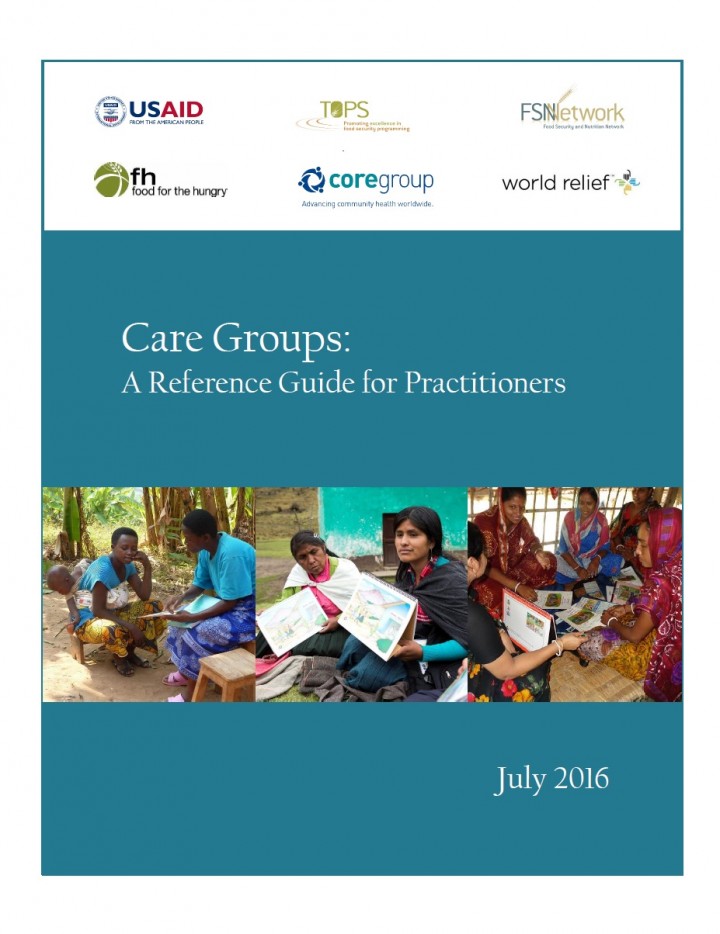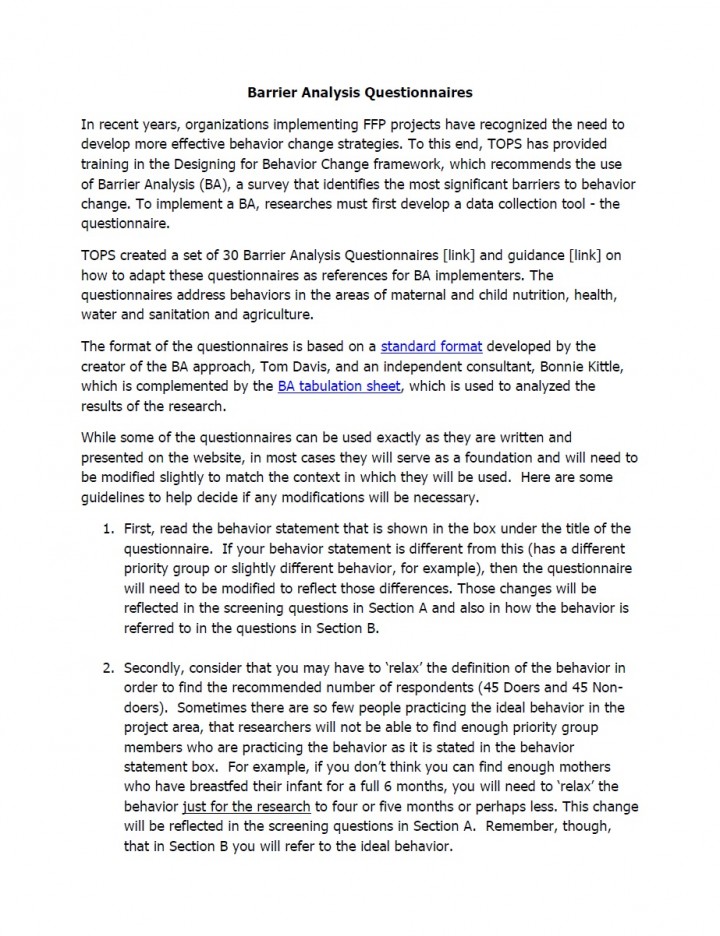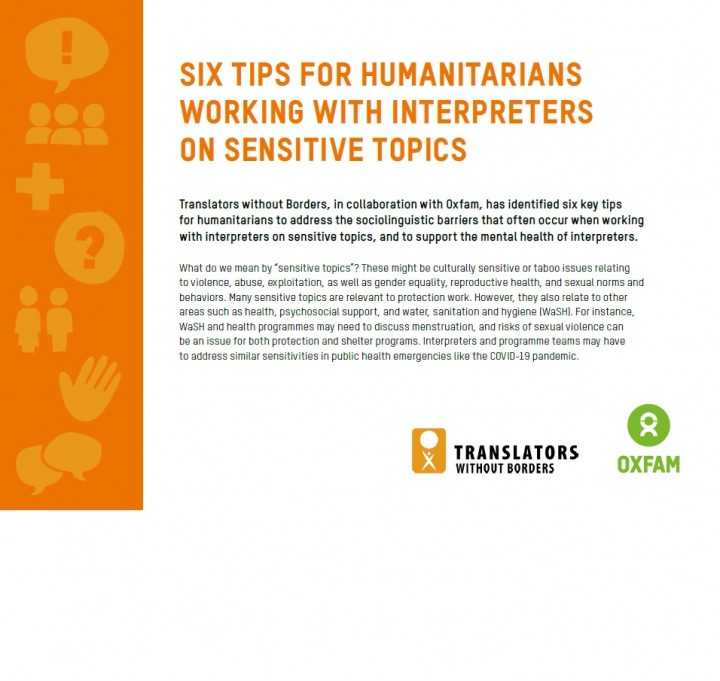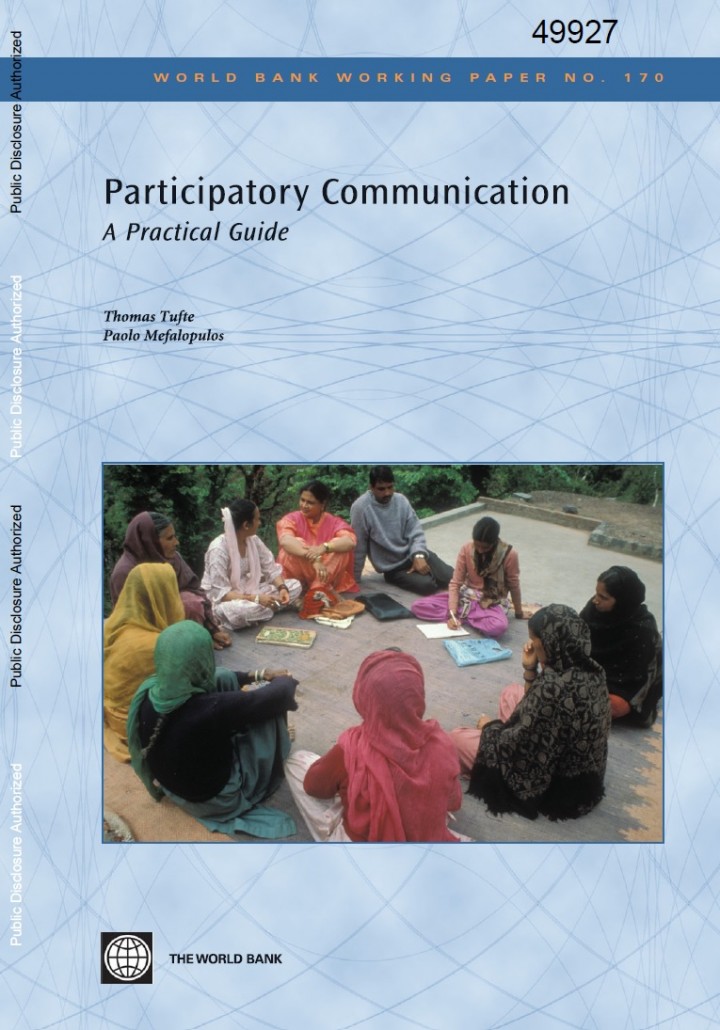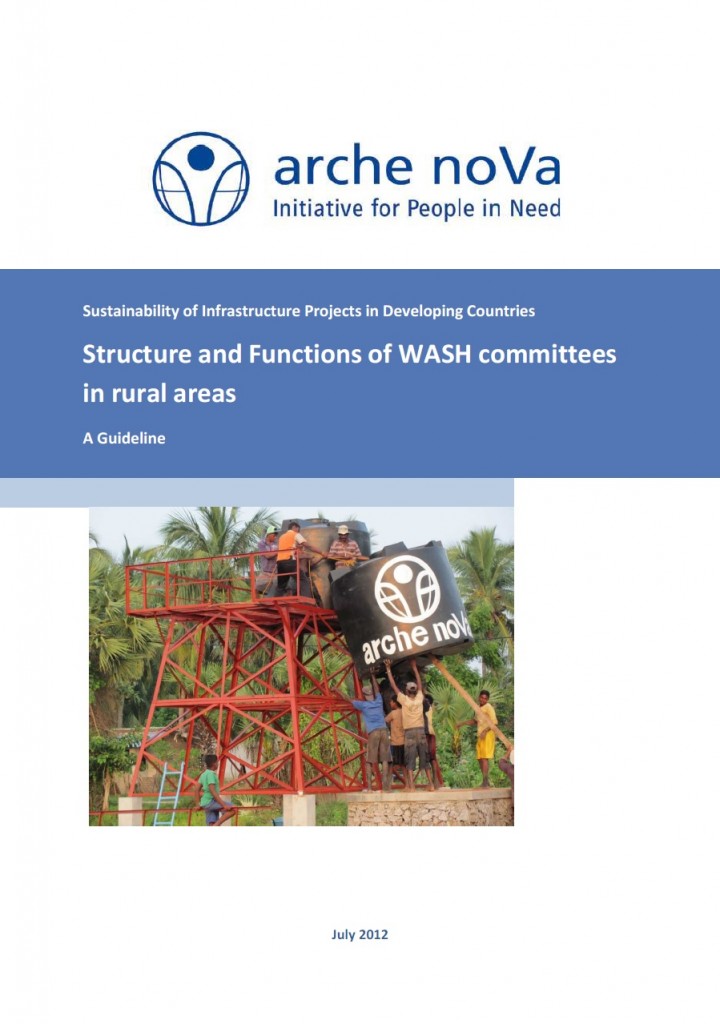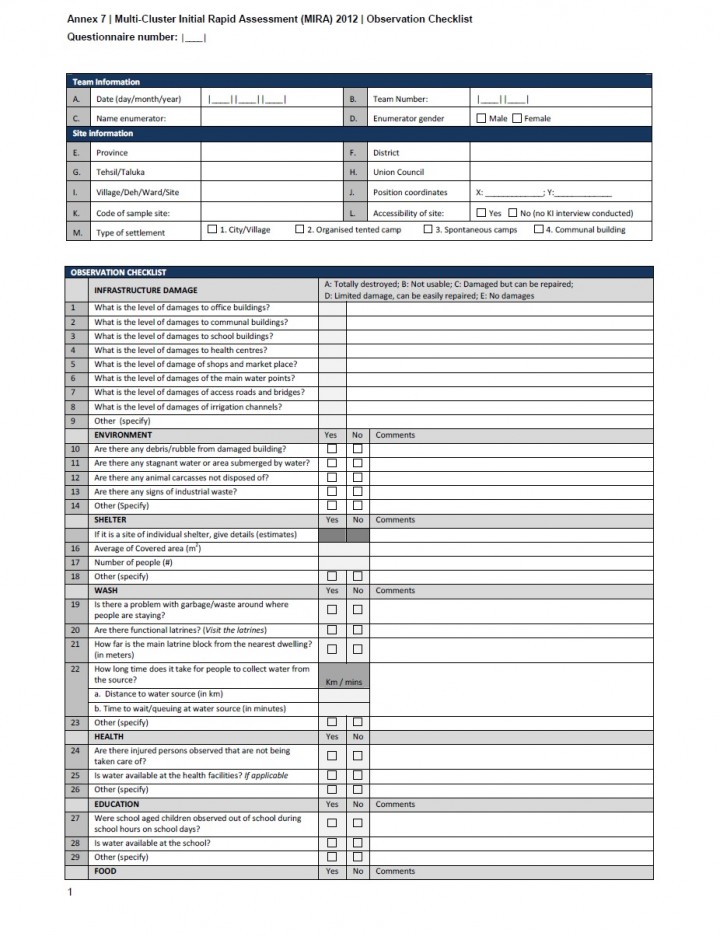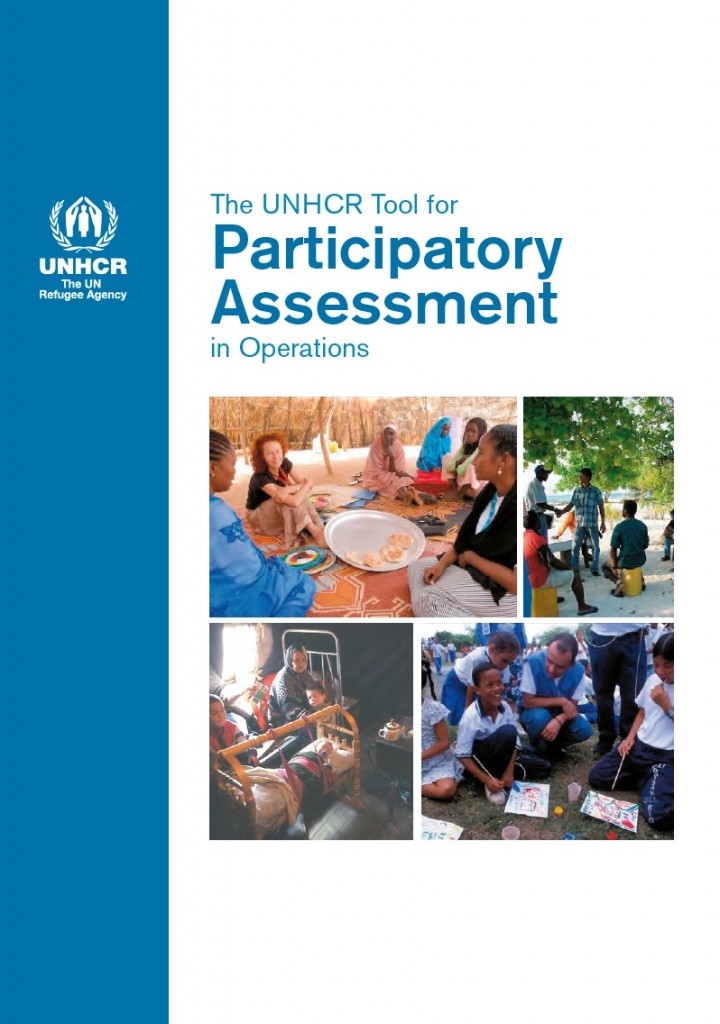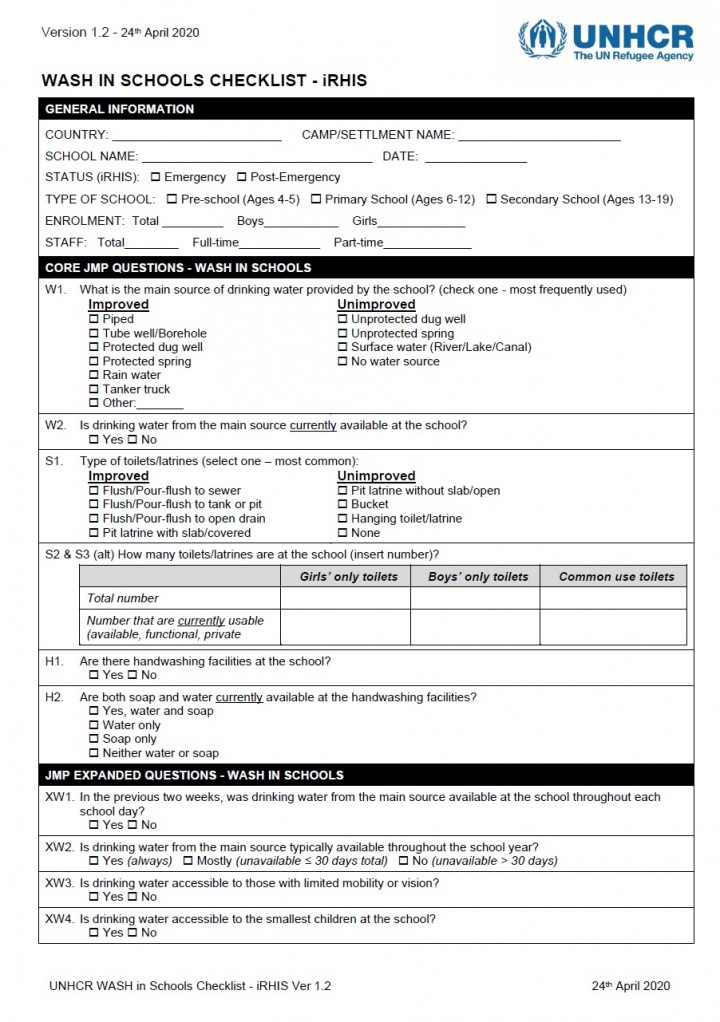Schmied, P. (2019) Social and Behaviour Change Insights and Practice
This document will help you to understand: what is social and behaviour change (SBC) what drives human behaviour (a few key things; no one knows it completely!), step by step, how you can integrate SBC into the various stages of your intervention, starting from the design to its final evaluation, where can you find the most helpful tools, guidance, examples and other resources.
Schmitt, M.L., Wood, O.R., Clatworthy, D., Rashid, S. F., Sommer, M. (2021) Innovative Strategies for Providing Menstruation-Supportive Water, Sanitation and Hygiene (WASH) Facilities: Learning from Refugee Camps in Cox’s Bazar, Bangladesh
There is growing attention to addressing the menstrual hygiene management (MHM) needs of the over 21 million displaced adolescent girls and women globally. Current approaches to MHM-related humanitarian programming often prioritize the provision of menstrual materials and information. However, a critical component of an MHM response includes the construction and maintenance of water, sanitation and hygiene (WASH) facilities, including more female-friendly toilets. This enables spaces […]
Sclar, G., Mosler, H.-J. (2021) Caregiver Social Support and Child Toilet Training in Rural Odisha, India: What Types of Support Facilitate Training and How?
Abstract: Studies show positive impacts of social support onchildcare practices, but there is limited research onchild toilet training. Social support with toilet trainingmay be especially important for rural Indian caregiversas this is a new childcare practice for many andmothers face an already demanding workload. The aimof this study was to examine the role of social supportin toilet training using mediation and conditional pro-cess analyses. We […]
Shafritz, L., Cowan, C. (2005) Spot on Malaria Facilitator’s Manual for Workshops on Adapting, Developing and Producing Effective Radio Spots. CHANGE Project
This Manual, along with the complementary publication— Spot On Malaria: A Guide to Adapting, Developing and Producing Effective Radio Spots —is intended to help those working on malaria, particularly at the district or local level, use radio to deliver critical prevention and treatment messages to those not often reached by national-level programs. The Guide may be downloaded in its entirety from http://changeproject.org/pubs/spotonguide.pdf. The workshop focuses […]
Smith, J., Blanchet, K. (2020) Research Methodologies in Humanitarian Crises
Humanitarian needs are extensive and widespread. In order to best respond to the needs of people affected by humanitarian crises, research in humanitarian settings is increasingly recognised as a valuable endeavour which allows for contextually relevant knowledge generation. Despite widespread appreciation of the value of research conducted in humanitarian settings, the inherent dynamism and unpredictability of certain humanitarian crisis contexts, combined with a myriad of implementation […]
SNV (2016) Behaviour Change Communication Guidelines
Sphere (2021) Sphere in Context for Assessments, Monitoring, Evaluation and Learning Sphere Unpacked
This resource explains why it is important to use Sphere standards throughout the humanitarian programme cycle, and how to do so. The document starts with a section on how to use humanitarian standards in your context. This is followed by standalone but complementary chapters for Assessment, Monitoring, Evaluation and Learning.
Spring Arbor University (2019) Fundamentals of Communication: 8 Basic Concepts and Definitions
Stanford University, World Vision, Sesame Street (0) WASH UP! Factsheet
Tools4dev (0) Logical Framework (Logframe) Template
The Technical and Operational Performance Support (TOPS) Program (2016) Care Groups: A Reference Guide for Practitioners
TOPS Program (2014) Barrier Analysis Questionnaire
Translators without Borders, Oxfam (2021) Six Tips for Humanitarians Working with Interpreters on Sensitive Topics
Tufte, T., Mefalopulos, P. (2009) Participatory Communication. A Practical Guide World Bank Working Paper No. 170
Many communication practitioners and development workers face obstacles and challenges in their practical work. A participatory communication strategy offers a very specific perspective on how to articulate social processes, decision-making processes, and any change process for that matter. Participatory approaches are nothing new. However, what is new is the proliferation of institutions, especially governmental but also nongovernmental organizations (NGOs) that seek participatory approaches in their […]
Uckrow, K., Stephan, Y. (2012) Structure and Functions of WASH Committees in Rural Areas Sustainability of Infrastructure Projects in Developing Countries. A Guideline
UN OCHA (2012) Multi Cluster Initial Rapid Assessment (MIRA) Observation Checklist
UNHCR (2006) UNHCR Tool for Participatory Assessment in Operations First Edition
UNHCR (2020) WASH in Schools Checklist iRHIS
The UNHCR WASH Monitoring System includes monitoring of refugee schools following the Joint Monitoring Program (JMP) guidelines, model questions and standard indicators. All refugee schools should be surveyed at least once a year. Indicators are tracked on the Refugee WASH in Schools Dashboard.
